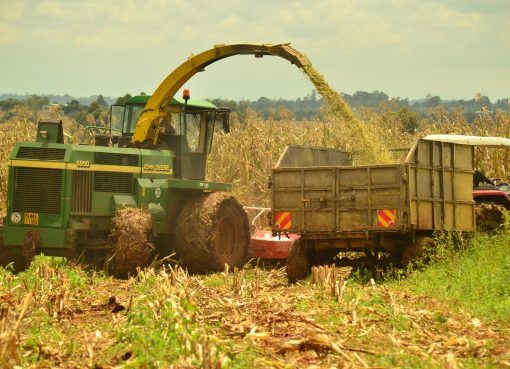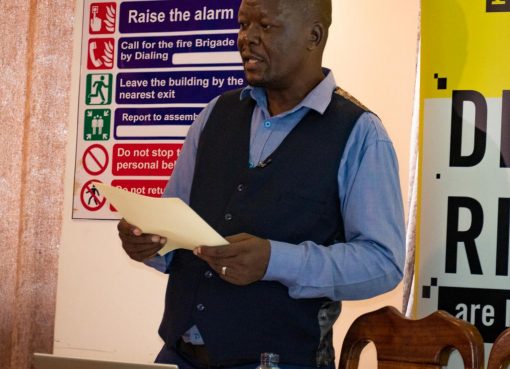The Cabinet Secretary for Devolution (CS), Eugene Wamalwa has reiterated the need for collaboration among stakeholders to seek realistic solutions to common challenges that hamper economic growth in ASAL counties.
Speaking during the opening of the 2nd ASAL conference in Amboseli National Park, Kajiado County, on Tuesday, Wamalwa noted that ASALs have for years been viewed as low potential areas hence attracted little investment and infrastructural development.
Wamalwa said there is immense potential in the ASAL counties and the region holds the promise of the economic future of Kenya with its beckoning prospects for wind and solar power, tourism, livestock development, irrigated agriculture and cross-border trade.
“ASAL counties have in the past been considered low potential with low investment opportunities and poor infrastructure to spur development while on the contrary they hold a high potential that fits well in the Big Four development agenda,” said Wamalwa.
The CS added that the region is home to more than 90 percent of the wildlife game that supports the tourism industry contributing to 12 percent of Kenya’s Gross Domestic Product (GDP).
He further said the region hosts 70 percent of the total national livestock resources with an estimated value of Sh.70 billion and added it has enormous potential for renewable energy production (both solar and wind) and other natural resources.
Drought, the CS noted, is one of the biggest threats to the well-being of communities living in the ASALs.
He challenged counties in the region to prioritise the fight against natural calamities by establishing Emergency Fund kitties to reduce their dependancy on aid adding that under Section 110 of Public Finance Management Act, counties are allowed to establish emergency funds.
Wamalwa assured the ASALs counties of continued Government support through elaborate programs such as social safety net Cash Transfer Programme; a collaboration with the World Food Programme (WFP) that has achieved a 98 percent success rate since its rollout.
“The government has embarked on transforming ASALs into becoming the country’s bread basket, with over 10,000 acres in Kilifi and Tana River counties under mechanised irrigation farming through the Galana-Kulalu Irrigation Scheme which has enabled them become food sufficient during drought periods,” he said.
He further called on leaders to prioritize the needs of the people and adopt proper management of public resources in the respective counties in order to uplift ASALs.
The CS said it was only through the taking stock of progress achieved that governments can plan ahead, rethink the design of projects and ensure that the lessons learnt are adequately taken into account to maintain the momentum in developing the ASALs.
Kajiado Governor Joseph Ole Lenku reiterated Wamalwa’s remarks adding that devolution had exposed the potential of ASALs through revamped efforts in previously dormant sectors such as agriculture, water, mining and industrialisation.
“It was a mistake to consider ASALs as low potential areas since key resources such as oil, tourism and agriculture are now emerging in these areas,” said Lenku.
He noted that in the past natural calamities such as drought and famine coupled with clan leadership wrangles and illiteracy had impeded development in most ASALs.
“There is an urgent need for action in addressing our problems as a region since these have greatly disadvantaged our people and stunted our economic development,” he said.
The Governor also faulted the continued discrimination of the local communities in the management of affairs at National Parks and Game reserves.
“The local communities bear the brunt of human wildlife conflict, including loss of lives and property yet as custodians they do not benefit from the huge profits made from the parks,” Lenku lamented.
He proposed that communities neighboring parks as stakeholders should be engaged by the park management in fair sharing of resources for the sake of sustainability.
The Kilifi Governor, Amazon Kingi on his part said ASALs have common challenges that need redress through consultative forums where mitigation efforts would be floated and workable solutions formed.
“We can sit and discuss our problems but so long as we do not implement the resolutions, we are not any better than those who started this journey fifty years ago,” Governor Kingi said.
His sentiments were echoed by Narok Governor, Samuel Tunai who called for consensus among stakeholders and development partners in pushing for enforcement of possible solutions for the common challenges experienced by the ASAL regions.
“We need more collaboration amongst ourselves as we make moves towards addressing and eradicating these perennial problems,” said Tunai.
Hundreds of guests attended the conference on the first day whose entry was free. They were treated to a free game drive in the evening at the Amboseli National Park for free.
The conference ends on September 12, 2019. The first conference was held in 2018 in Malindi, Kilifi County.
ASALs make up 89 percent of the country size with approximately 38 percent of Kenya’s population.
The 29 ASAL counties are Kwale, Kilifi, Tana River, Lamu, Taita Taveta, Garissa, Wajir, Mandera, Marsabit, Isiolo, Kitui, Machakos, Makueni, Turkana, West Pokot, Samburu, Elgeyo Marakwet, Baringo, Laikipia, Narok, Kajiado, Nyeri, Tharaka Nithi, Meru, Embu, Migori, Homa Bay, Nakuru and Kiambu.
By Rop Janet



